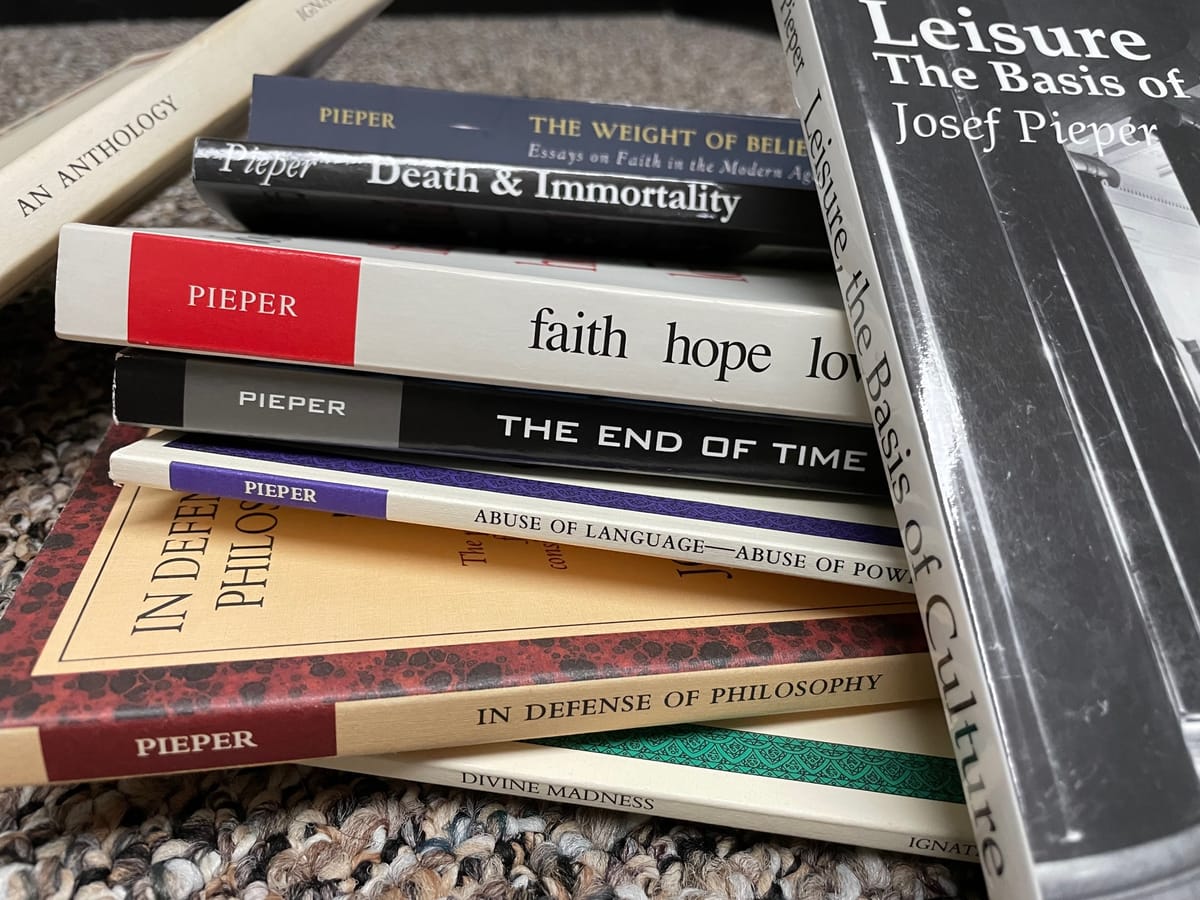Leisure is Counter-Conduct
In the modern world of "total work" demanded by the left hemisphere, we need to carve out leisure. It's helpful to understand what "leisure" is.

But where can truth be sought? When can it be sought? Ambrose has no time. There is no time for reading.
That's Augustine, reflecting on his mentor Ambrose's hectic life.
Ambrose adapted. He read between interruptions: he sat there, silently absorbed in his book, until the next person came in to interrupt him. The author of this lovely essay says Ambrose's reading "is an example of leisure."
Leisure: Leisure, leisure, leisure. Thanks to Josef Pieper's classic work, it has increasingly become a source of hope--and concern--among people who feel trapped in our modern world of busyness.
Leisure is a form of counter-conduct: a rebellion against left-hemisphere hegemony. The left hemisphere aims, grasps, works. It values efficiency and accomplishment.
The right hemisphere, not so much. So things are occasionally necessary, just as it's necessary occasionally to kill an orc, but life in general ought not be concerned with such things.
When Pieper condemned the world of "total work," he was condemning the left-hemisphere approach to life. Neurological science just hadn't caught up with philosophy.
Pieper applauds leisure because it defies--by transcending--"rational usefulness and efficiency." He admires the lover because he stands outside "the tight chain of efficiency" (Leisure, St. Augustine Press, 1998), p. 68).
The term has been variously described. Kevin Majeres has even said "leisure" is, in Pieper's usage, practically synonymous with "mindfulness." I'm not sure he's right, but I'm going to explore it by re-reading sections of Pieper later this month.
For now, I think it's helpful to attempt a few definitions:
Leisure is freedom from work, either direct work (e.g., actually at the office) or indirect work (e.g., taking a break so you can work better later or thinking about your job when you're at home).
Indirect work makes the modern world a place of "total work." If you are taking vacations or relaxing to "restore your batteries" so you can return to the office with renewed vigor, you're living the life Pieper was concerned about.
Note: This definition of "leisure" is not exactly how Pieper would've defined it, and many Pieper commentators would recoil at such a vague definition that leaves the door open to licentiousness and debauchery, but I'm here defining a "thing," not an "activity."
General Leisure Activities are those things that are not done in pursuit of any earthly gain but are neither "debauched" nor "contemplative." I think Fr. James Schall would have agreed with my definition. I worked with Schall on a magazine, corresponded with him frequently, and even had lunch with him. He was a serious Pieper disciple. His enjoyable On the Unseriousness of Human Affairs praised "leisure activities" like reading comic strips, watching baseball games, and just wasting time in general.
Debauched Leisure Activities are things like drunkenness, extended periods spent in gossip, and watching porn. They need not detain us further here.
Contemplative Leisure Activities are those things not done in pursuit of any earthly gain and that exercise or involve a higher human faculty. These are the activities rightfully praised by Zena Hitz. These are activities like art, prayer, poetry, reading, and philosophy.
Lower Contemplative Leisure Activities is a classification I've concocted. There are many activities that are "higher" (more active, more involved) than "general leisure activities," but don't normally rise to the level of "contemplative leisure activities." I'm mostly referring here to hobbies: golfing, bird-watching, mushrooming, gardening.


